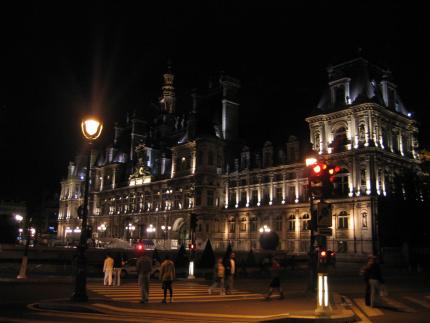-
-
-
Par MMaxi le 14 March 2007 à 12:32

The Vienna State Opera is one of the foremost opera houses in the world – and it offers diversity at the highest level. Three hundred days a year, the Vienna State Opera offers a program that changes daily: more than 60 operas and ballets during the 2006-2007 season.
Top international soloists, directors and stage designers greatly enjoy presenting their art to knowledgeable and discerning Viennese audiences. And the roster of directors of the august house on Vienna’s Ring Boulevard contains a number of eminent musicians such as Gustav Mahler (1897 - 1907), Richard Strauss (1919 - 1924), Herbert von Karajan (1956 - 1964) and Claudio Abbado (1986 - 1991).
The repertory of the Vienna State Opera offers an impressive cross-section of the entire range of operas – among the works are Georges Bizet’s “Carmen,” Giuseppe Verdi’s “Nabucco,” W. A. Mozart’s “Così fan tutte,” Ludwig van Beethoven’s “Fidelio,” and Richard Wagner’s “Lohengrin.” During the 2006-2007 season, five premieres with international stars will be performed: Giuseppe Verdi’s “Otello,” Richard Strauss’s “Arabella” with Thomas Hampson, Jules Massenet’s “Manon” with Anna Netrebko, Gaetano Donizetti’s “La Fille du Régiment” with Montserrat Caballé, and Modest Mussorgsky’s “Boris Godunov“.
The building itself was erected between 1863 and 1869 as one of the first great monuments of the new Ring Boulevard. The Royal-Imperial Court Opera Theater, as it was first called, was designed by the architects August Sicard von Sicardsburg and Eduard van der Nüll.
Once a year, the stage and orchestra stalls of the Vienna State Opera turn into a giant dance floor – for the Vienna Opera Ball. More than a hundred debutante couples in long evening dress and tailcoats open the ball in the presence of the Austrian Federal President; once more, one can feel the ambiance of the Vienna of the great Ring Boulevard era ...
-
-
Par MMaxi le 4 March 2007 à 04:18

RANDOM WORDS I USED THIS FEBRUARY OF 2007
demeans glorify Byzantine unconventional cricketers
compromises franchising amaze seize examples throat
inseparable portray incredible beginning Shrub
democracy stomach research female
truly emptiness disfigured ofcourse inspires tried
contrary headache watching process comment
sexiest nicest jokers sleaze willing obedient shrub
favorite announced introducing middle dyslectic
smallest obsessed succeeded waiter connection Women
Swallowing Brought alcohol carefully promise mystery
tattoos Yellow coming Gipsies community
persecuted nazis wear their Ukraine determination
Italy's following skinny achievement somewhere
gentleman's York elderly coffee flowers personality
heavenly
MMAXI
-
-
Par MMaxi le 8 November 2006 à 16:45

Niccolo Macchiaveli
1469-1527
In the late 1400’s, the Medici family lost power in Florence. Niccolo Machiavelli served in the new Florentine governing power structure, rising to a high position. In about 1512, the Medici’s regained their power base in Florence. Machiavelli, not in their favor, devoted the remainder of his life to writing. There is some speculation that his books were aimed at securing a de Medici patron. His most famous book, The Prince, is dedicated to ' Magnificent Lorenzo Di Piero De' Medici'.
-
-
MMaxi on the move











